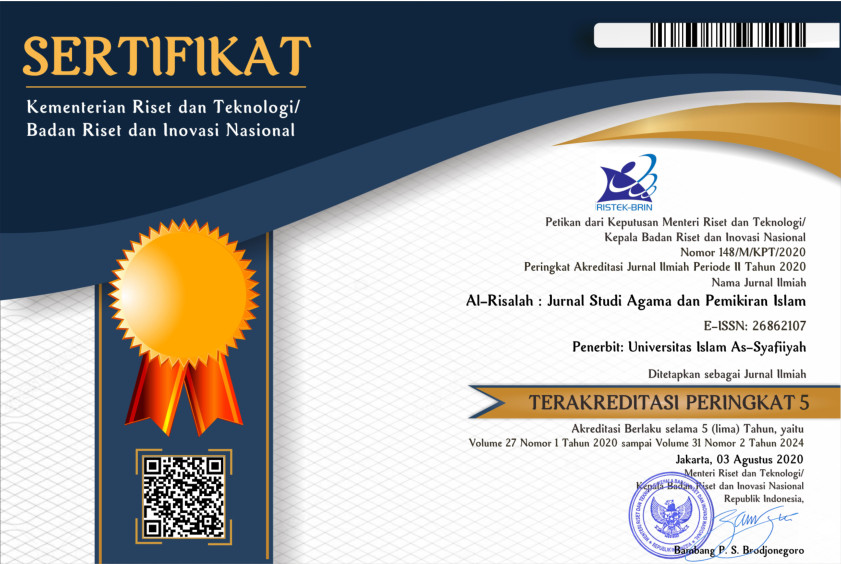AN ASSESSMENT OF THE ROLE OF ISE IN DA’WAH ACTIVITIES IN EGGONLAND
Abstract
This paper documents and also assess the different method employed by ISE for its Da’wah Activities in Eggonland. The study highlight the Da’wah approaches and methodology of Islamic Society of Eggonland and its contributions. The study also found that the coming of ISE with modern Da’wah train, a different Da’wah to proselytize Islam and its beauty to people of Eggonland and the wider world through its various humanitarian programmes that are geared towards building the Ummah is yielding result. It is a successful of because in its humanitarian programme people are equally treated irrespective of their religion. The study adopted Survey method using primary sources, where interview and observation were to obtain data on the Da’wah activities of the ISE. This research is expected to become a model for the development of Da’wah in a multi-religious society. The findings are essential for Islamic Da’wah organizations to redesign and formulate various modern Da’wah programmes in order to ensure improved way to engage the people.
Copyright (c) 2022 Tahdzib Al-Akhlaq: Jurnal Pendidikan Islam

This work is licensed under a Creative Commons Attribution 4.0 International License.
This work is licensed under a Lisensi Creative Commons Atribusi 4.0 Internasional.
Authors who publish with this journal agree to the following terms:
- Authors retain copyright and grant the journal right of first publication with the work simultaneously licensed under a Creative Commons Attribution License that allows others to share the work with an acknowledgment of the work's authorship and initial publication in this journal.
- Authors are able to enter into separate, additional contractual arrangements for the non-exclusive distribution of the journal's published version of the work (e.g., post it to an institutional repository or publish it in a book), with an acknowledgment of its initial publication in this journal.
- Authors are permitted and encouraged to post their work online (e.g., in institutional repositories or on their website) prior to and during the submission process, as it can lead to productive exchanges, as well as earlier and greater citation of published work (See The Effect of Open Access).





